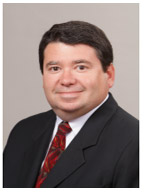 |
Correct!
Answer:
(3)
Article 4(1)(c) of the Data Protection Directive states
that EEA Member States shall apply their national laws,
as transposed from the Data Protection Directive, to data
controllers not Established in an EEA Member State if that
data controller “for purposes of processing personal
data makes use of equipment, automated or otherwise, situated
on the territory of the said Member State, unless such equipment
is used only for purposes of transit through the territory
of the Community”.
This means that if a corporation determines the (1) purpose
and means of processing (e.g. acts as a data controller,
(2) is not established in an EEA Member State, (3) uses
equipment located in an EEA Member State and (4) that processing
is not merely for the purpose of transit (e.g. to receive
and automatically transmit data, a conduit), then that corporation
is subject to European Data Protection law and the law of
the EEA Member State in which the equipment is located.
As a strict interpretation, the term “equipment”
in Article 4(1)(c) can include the terminal end equipment
of a user (e.g. computer, smart phone, tablet PC) if a corporation
were to place information (e.g. through the use of a cookie)
on a user’s terminal end equipment as part of their
processing. However, in practice, a nominal interaction
with the terminal end equipment will not give cause for
a Data Protection Authority to investigate a corporation’s
data protection activities.
Please note, this answer is based generally on the Data
Protection Directive. Each Member State has implemented
their own national law based on the Directive which may
diverge from the answer given. This answer has not considered
issues of public international law.
Frequently,
multi-national corporations that are not “established” in
EEA, being the 27 EU Member States plus Norway, Lichtenstein
and Iceland process the personal data of EU residents. Generally,
in which circumstances are these foreign corporations required
to comply with European Data Protection Law under Directive
95/46/EC (the “Data Protection Directive”)?
1.
The corporation contracts with data controllers, based in
the EEA.
2.
The corporation contracts with data processors, based in
the EEA
3.
The corporation acts as a data controller, and uses servers
or other equipment to process personal data located in aEEA
Member State.
4.
The corporation acts as a data controller and makes its
goods/services available to EEA residents".
|

